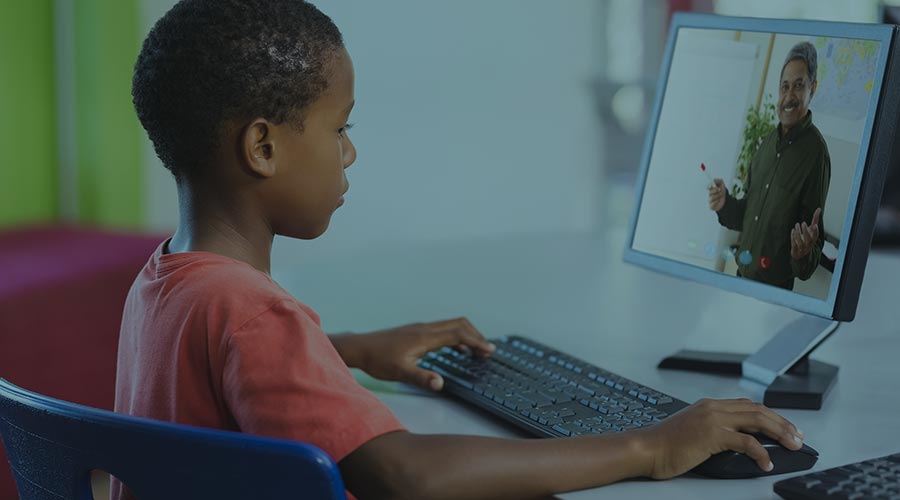In October 2021, Robert F. Smith participated in a virtual panel hosted by World Economic Forum (WEF) to discuss digital inclusion and how to “mobilize and scale-up technologies” to create equitable internet access. As schools continue to shift toward online learning, students of color are left behind because their households may lack the stable high speed internet access necessary for audio visual learning.
According to a 2020 study by Boston Consulting Group, around “16 million children, or 30% of all U.S. public school students, lack either an internet connection or a device at home adequate for distance learning.” The same report also found that almost 10% of public school teachers have the same dilemma, hindering their ability to teach remote classes. In a 2020 analysis by four educational advocacy groups, “1 in 3 Black, Latino and American Indian students do not have high-speed home internet access and are more likely than their White peers to be disconnected from online learning.” The groups providing the analysis, the Alliance for Excellent Education, the National Indian Education Association, the National Urban League and UnidosUS shared the following data:
- 34% of the household of Indiginous people lack high-speed internet access at home and almost 16% of homes have no computer.
- 36% of Americans living in rural areas of the U.S. lack high-speed home internet access and 14% of homes have no computer.
- 31% of Latino families lack high-speed internet access at home, and 17% of homes have no computer.
- Approximately 31% of Black households lack high-speed internet access and 17% of homes have no computer.
- 44.5% of households making less than $25,000 annually lack high-speed home internet access and nearly 29% of those homes have no computer.
Robert F. Smith’s Work to Address the Digital Divide
Although there are private and public initiatives to help connect students for free or at a discounted rate, there is currently no federal policy to ensure every student has internet access. Through his role in WEF’s EDISON Alliance, Robert F. Smith is working to help fix this issue.
EDISON Alliance is an initiative created by the WEF to mobilize a global movement centered on digital inclusion. Short for Essential Digital Infrastructure and Services Network, the EDISON Alliance aims to work with both governments and the private sector to accelerate solutions that end the digital divide across the world. Smith serves on the board of the Alliance. “Connectivity is oxygen for opportunity… just as we push for equitable access to clean air and water, we also need to scale up access to broadband, devices, and digital literacy, which are onramps to education, healthcare, financial services, and human empowerment,” said Smith when the Alliance was first announced in January 2021.
Beyond his work with the EDISON Alliance, Smith champions The 2% Solution as a way for businesses to empower and invest in Black communities. Smith believes The 2% Solution can serve as an “economic catalyst to change financial futures of all Americans,” especially those from marginalized communities. On average, families across the United States donate 2% of their income to charity — Smith’s solution asks U.S. corporations to follow their lead by investing 2% of their yearly profits or an equivalent in services to communities that are negatively impacted by the racial wealth gap.
Listen as Smith describes the work needed to close the digital gap in this video from the Executive Leadership Council’s “Value. Vision. Voice. Black Men in Leadership Conference 2021.”






